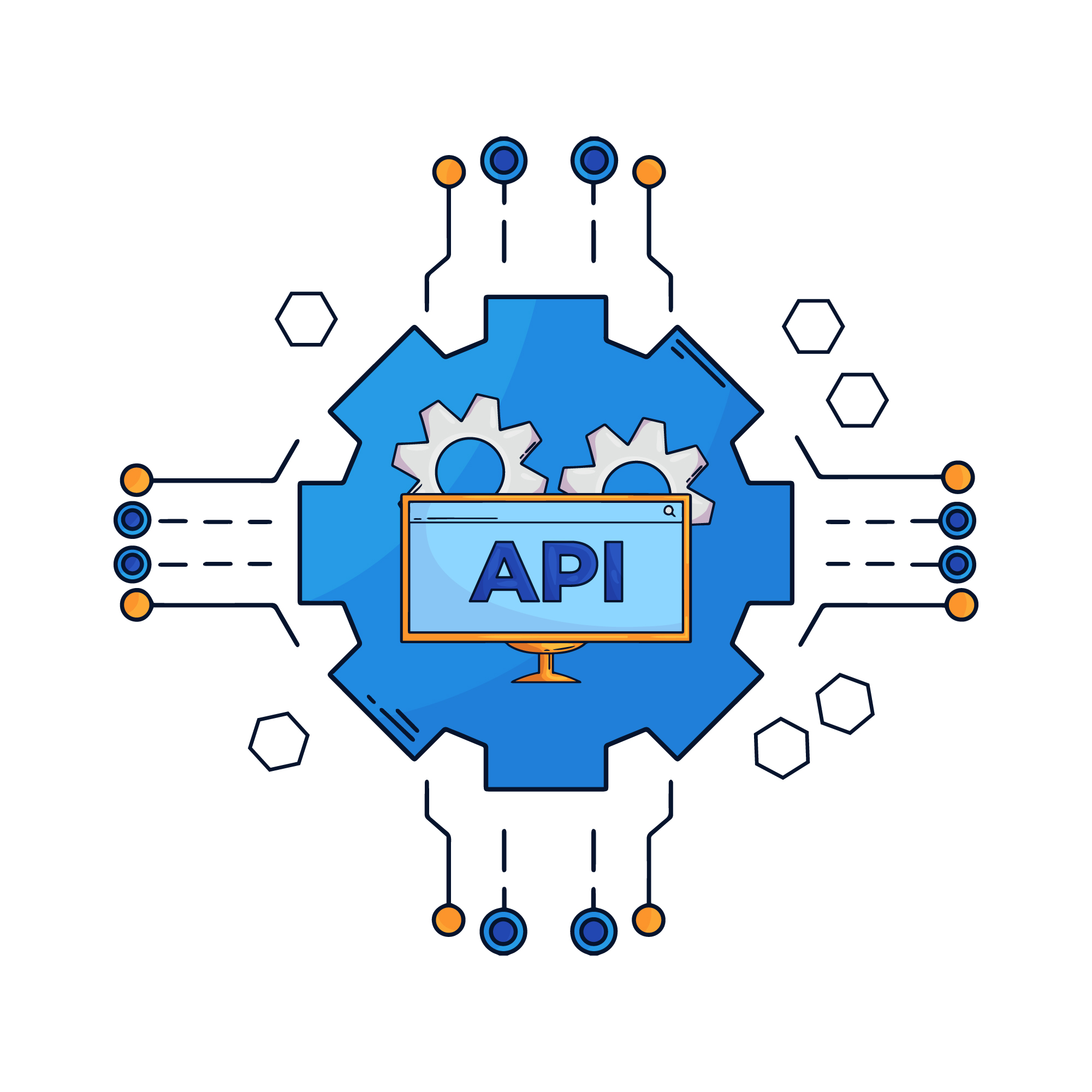5 Key Benefits of Implementing API Integration Services in Your Business

In today’s digital landscape, businesses are constantly seeking ways to streamline operations, enhance efficiency, and improve customer experiences. One powerful solution lies in the implementation of API (Application Programming Interface) integration services. API integration plays a pivotal role in enabling different software systems to communicate and work together seamlessly. Here, we explore the five key benefits of implementing API integration services in your business.
1. Enhanced Data Connectivity and Sharing
One of the primary advantages of API integration is the ability to connect disparate systems, allowing for efficient data sharing and communication. This interconnectedness ensures that data flows smoothly between applications, eliminating data silos. For example, integrating your CRM system with your email marketing platform can enable you to personalize customer interactions based on real-time data, leading to more effective marketing campaigns.
2. Automation of Business Processes
API integration services can significantly automate repetitive and time-consuming tasks. By connecting various applications, you can automate workflows, which not only saves time but also reduces the likelihood of human error. For instance, integrating your e-commerce platform with your inventory management system can automatically update stock levels, streamlining the order fulfillment process.
3. Improved Customer Experiences
In the age of customer-centricity, providing a seamless and personalized customer experience is paramount. API integrations enable businesses to gather comprehensive customer data from various touchpoints and leverage this information to offer tailored services. For example, integrating your e-commerce site with social media platforms can provide insights into customer preferences, allowing for more targeted and relevant product recommendations.
4. Scalability and Flexibility
As your business grows, your technology needs to evolve with it. API integration services offer scalability and flexibility, allowing you to add new functionalities and systems without disrupting existing operations. This adaptability is crucial in today’s fast-paced business environment, where being able to quickly respond to market changes can give you a competitive edge.
5. Cost-Effective and Efficient Operations
Finally, API integrations can lead to more cost-effective and efficient operations. By streamlining processes and improving data accuracy, businesses can reduce operational costs. Additionally, API integrations often reduce the need for custom software development, which can be both time-consuming and expensive.
Expanding Business Capabilities through API Integration
Beyond the foundational benefits already discussed, API integration services offer further potential to revolutionize how businesses operate and engage with their customers and partners. Let’s delve deeper into additional advantages and real-world applications of API integrations.
6. Real-Time Analytics and Decision Making
APIs play a crucial role in enabling real-time data analytics, which can be transformative for decision-making processes. By integrating APIs from various data sources, businesses can gain instant insights into market trends, customer behavior, and operational efficiency. This real-time analysis allows for quicker, more informed decisions, giving businesses a competitive edge. For instance, a retail company can use API integrations to monitor inventory levels and sales data across multiple locations in real-time, enabling swift restocking decisions and identification of trending products.
7. Enhanced Security and Compliance
In an era where data breaches are a significant concern, API integrations can bolster security. Well-designed APIs include security protocols and encryption, ensuring data is transferred securely between systems. Moreover, APIs can help businesses stay compliant with regulations like GDPR or HIPAA, as they allow for better control and tracking of how data is accessed and used.
8. Facilitating Innovation and New Services
API integration opens doors to innovation. By leveraging external APIs, businesses can add new features and services without extensive internal development. For example, a travel booking company could integrate an external weather forecasting API to provide customers with real-time weather information for their destinations, enhancing the customer experience and offering a unique service.
9. Strengthening Partner and Supplier Relationships
API integrations also enhance collaboration with partners and suppliers. By enabling smooth data exchange, businesses can optimize supply chains, improve communication, and create a more integrated ecosystem. This streamlined collaboration can lead to improved product offerings and quicker time-to-market, as seen in manufacturing industries where real-time data exchange with suppliers can significantly speed up production processes.
10. Personalization at Scale
In a world where personalization is key to customer engagement, APIs allow businesses to tailor their services at scale. By integrating data from various sources, companies can create highly personalized experiences for their customers. An online retailer, for example, can use APIs to analyze customer browsing patterns, purchase history, and social media activity to offer personalized product recommendations and discounts.
Embracing the Future with API Integration
The strategic implementation of API integration services not only propels operational efficiency but also drives innovation, enhances customer engagement, and fosters collaborative ecosystems. It is a gateway to not just keeping up with the digital evolution but actively shaping and leading it in your industry sector.
Conclusion
The integration of API services into your business infrastructure offers numerous benefits, from enhancing data connectivity to automating business processes, improving customer experiences, providing scalability, and reducing operational costs. As businesses continue to navigate the digital landscape, the implementation of API integrations stands as a key factor in driving efficiency, innovation, and competitive advantage.




